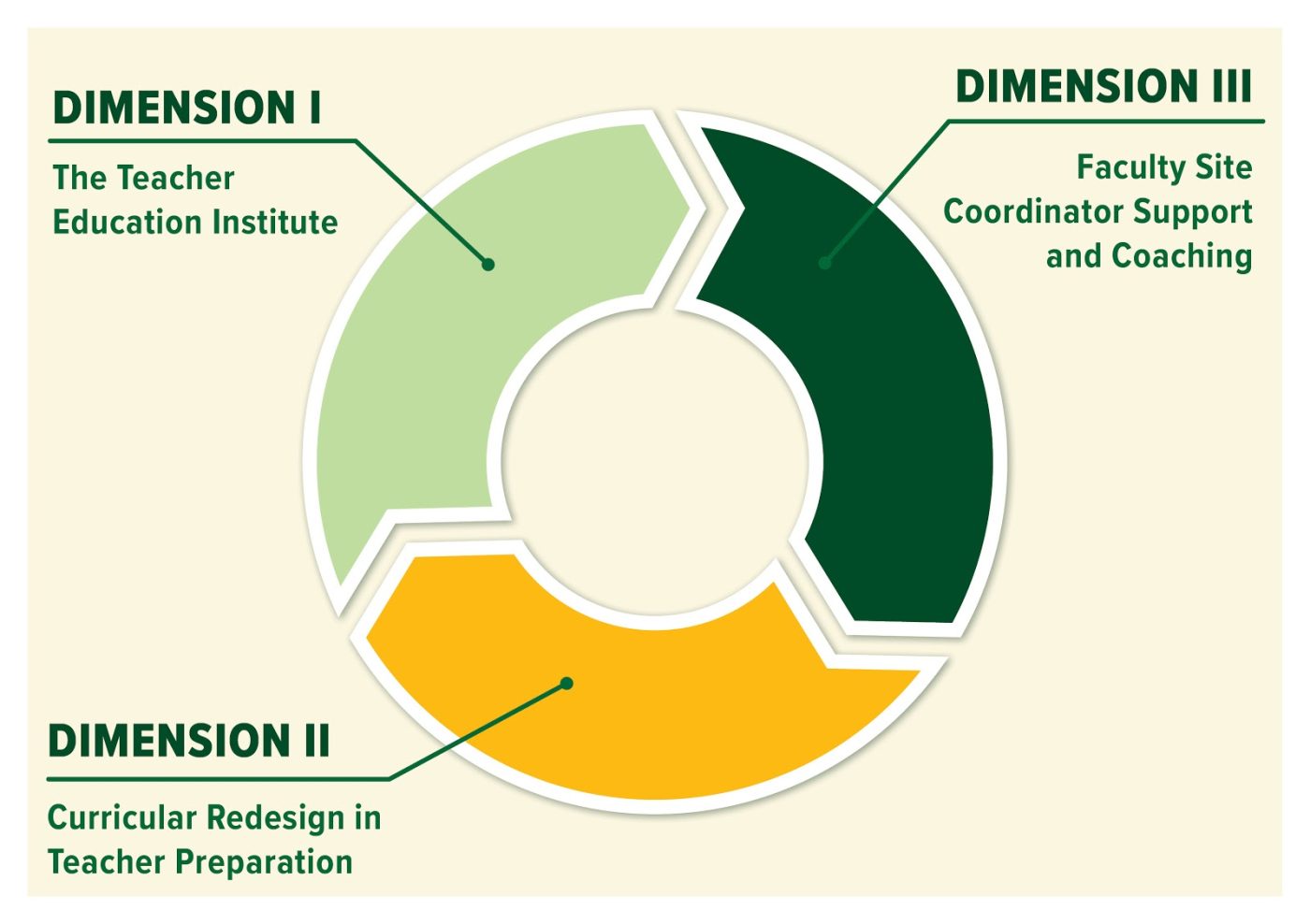Dimensions of Teacher Preparation
Overview
Teacher preparation at the Cato College of Education is far from an isolated experience. The college partners with local school districts and P-12 school leaders to create a shared process for teacher education. This process is broken into three, interrelated dimensions.

Dimension I: The Teacher Education Institute
The Teacher Education Institute (TEI) was formed to develop a shared understanding of practice among key stakeholders in teacher candidate preparation, namely: teacher education faculty, faculty supervisors, and the clinical educators. Beginning as a summer convening, TEI offers a multi-day workshop on the Cato College of Education’s identified focus practices as well as various instructional coaching techniques. Each fall and spring stakeholders reconvene to discuss application of coaching strategies as well as to address issues of barriers to instruction. Funding for TEI has been provided by gracious donations of the Belk Foundation and the Vicki and Gene Johnson. For more information, visit the TEI webpage.
Dimension II: Curricular Redesign in Teacher Preparation
In order to address the shared vision developed during TEI, faculty, under the consultation of P-12 school partners, have substantially revi
sed teacher education programs within the Cato College of Education. Task forces comprised of faculty and local school personnel devised curriculum maps aligned with the four pillars of the curricular revisioning:
- An Emphasis on Focus (i.e., Core) Instructional Practices
- Utilization of a Practice-Based Instruction
- Integration of research into instructional decision-making
- Attention to the Diverse Perspectives of Learners and Educators.
Revised course outlines and, when necessary, developed new courses that reflected the learning trajectories of candidates. During the summer of 2019, faculty continued their ambitious work—developing syllabi, assessments, and activities that reflected their curricular maps and, by extension, the four pillars of the revision process. Illustrated in a comprehensive report, faculty made substantive changes to their teacher preparation programs.
Dimension III: Faculty Site Coordinator Support and Coaching
To bridge the work of TEI and the curricular revisions, the Office of School and Community Partnerships (OSCP) was created. The focus of the office includes:
- Building school partnerships for the placement of student teaching candidates,
- Enhancing professional development for clinical educators (mentors and hosts for student teachers),
- Enhancing professional development for faculty site coordinators (formerly university supervisors), and
- Supporting TEI by providing feedback and support to clinical educators and candidates on the focus practices and coaching.
Faculty within OSCP supported the Teacher Education Institute (Dimension I) and the curricular revisioning (Dimension II). As faculty site coordinators, they bridge other facets of teacher preparation in the Cato College of Education through the following:
- Working shoulder-to-shoulder with administrators and P12 clinical educators to support candidates in 3 – 5 schools
- Providing support to clinical educators on coaching and implementation of focus practices,
- Collecting, analyzing, and presenting data to support candidate placement in partner schools.
The Assessment Plan for student teaching candidates supports faculty site coordinators and clinical educators in their roles. It includes a walk-through coaching instrument, reduction of formal observations, and implementation of the focus practices. Throughout the academic year, training on coaching, co-teaching, Crucial Conversations, and the focus practices are provided to faculty site coordinators to support their essential role.